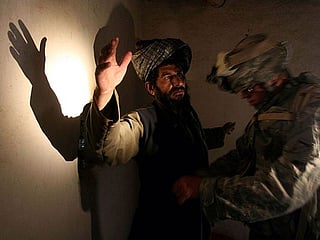Taliban government in Afghanistan gets lukewarm world response
But key global powers have not categorically said they will not recognise it

Dubai: Countries around the world have reacted with extreme caution following the announcement of an ‘acting’ Taliban government that is jam-packed with hardliners, many of whom are on wanted lists globally.
The US state department said it was concerned by the “affiliations and track records of some of the individuals”. Secretary of State Antony Blinken has been at work, trying to build a common platform with America’s Western allies to set out a criteria for the global community to deal with the current ground reality in Afghanistan.
Elements of the former government and the armed Afghan opposition have called for a total boycott of the new political dispensation. But, they have no cards to play as their defeat inside Afghanistan has been total, and the Taliban are in full control of the country.
Dim view
Importantly, many key global powers have not categorically said they will not recognise the Taliban government. However, most have taken a dim view of the developments. The European Union expressed dismay at the appointments but said it was ready to continue humanitarian assistance, adding that future aid would depend on Taliban actions. China has already promised $31 million in aid and urged the new government to crush terrorism.
Clearly, the Taliban’s ‘acting’ government is not an inclusive one as promised, but it is what it is, and it seems the world community will have little option but to deal with it at some level. Recognition of the government, of course, is altogether another thing.
The other fear is about how long the ‘acting’ government will continue. There are growing suspicions the Taliban is testing the political waters with its governmental appointments, and that the interim government will end up being not-so-interim at all.
Sign up for the Daily Briefing
Get the latest news and updates straight to your inbox









